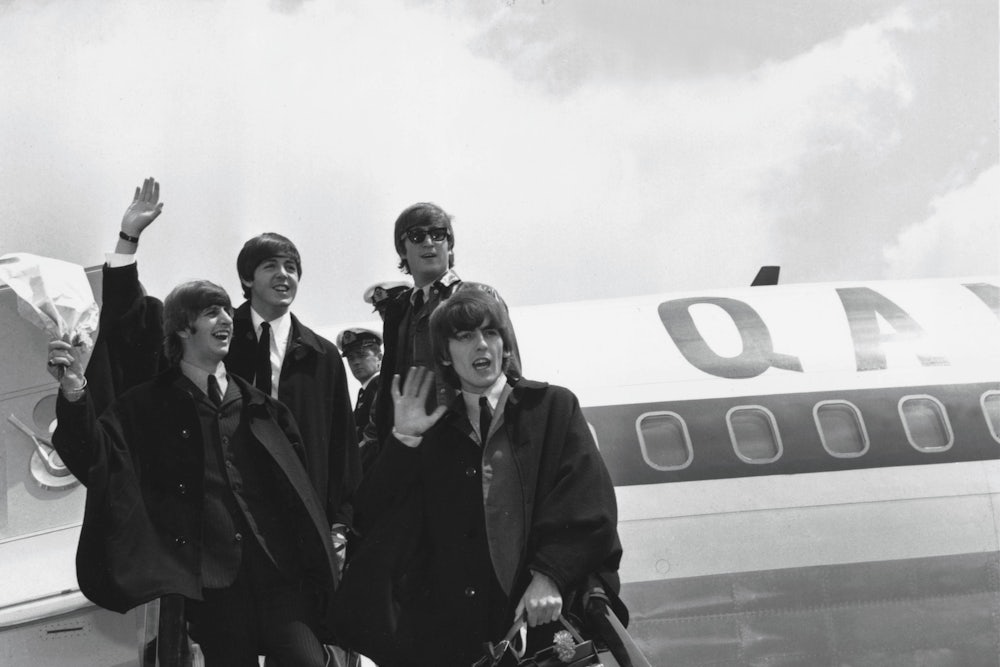The drug situation in Britain is now in total public disarray. Sentences imposed on two of the Rolling Stones came unstuck, one Beatle—Paul McCartney—has entered the lists in favor of LSD, and all four Beatles along with 60 other notables and semi-notables have petitioned in the Times for marijuana to be legalized. For the opposition, as it were, a Dr. Abel, who runs a National Association for Drug Addiction, has suggested that the communists are mixed up in it all somehow, and lady columnists keep screaming at parents to beware.
The daily press has had a marvelous time, especially with the Stones case. A February house raid led to Mick Jagger being prosecuted for having four pep pills in his possession, and Keith Richard, whose home it was, charged with allowing marijuana to be smoked. It turned out Jagger’s doctor knew about the pep pills, and though he had not actually prescribed them—Jagger got them in Italy—his knowledge was enough to get Jagger a conditional discharge. There was a nude in the case; at least, she wore a fur rug, but at one point, she threw it off, saying, “Look, they want to search me,” and the court concluded this meant she was high on pot. The Lord Chief Justice, quashing Richard’s 12-month sentence, concluded on the contrary that she was being sarcastic.
After the teenagers had had their swoon, Jagger was flown by helicopter to a walled country house to say his piece to the public. His beaming inquisitors were a Roman Catholic priest, the Anglican Bishop of Woolwich, a former Home Secretary, and the editor of the Times. The resulting television program must rank among the all-time nonsenses. The sight of these four just men fawning on a pop idol was condemned by one critic as “obscene had it not been so absurd.” The Times was well aboard the bandwagon with its strategically placed ad for legalizing marijuana, whose signatories included two MPs, 15 doctors, a monk, Graham Greene, and the Beatles. They want smoking of cannabis on private premises made legal, possession punishable by at most a $30 fine in the first instance—not the current permitted penalties of 10 years’ imprisonment and $3,000—and the sentences on those currently in prison commuted. The ad cost around $5,000, and was organized by an American, Steve Abrams, who operates an organization called SOMA, which examines the effects of pleasure-giving drugs.
Paul McCartney “confessed” he had taken LSD, and said it brought him nearer to God. It seemed that the progressives had all the running and the barriers against pot and LSD were cracking. Then into the breach stepped Home Secretary Roy Jenkins’ deputy, Alice Bacon. “I was in the hairdresser’s yesterday and a copy of the magazine Queen was passed to me to while away the time while I was under the hair drier. There was an article in it called ‘The Love Generation,’ and statements from various people who are pop singers and managers of pop groups. I was horrified by some of the things ... in it.” Horrified in particular by Paul McCartney sounding off again about LSD and the deity. Miss Bacon could find solace in only one contribution, that from another singer, who sings under the name Lulu. “Love,” said Lulu, “is far older than pop, and goes right back to Jesus. I am a believer.”
On the one side, the Beatles, the Stones, the Times signatories, marijuana and LSD; on the other, Lulu, and Miss Bacon. It hardly seems a fair lineup. But there was a sleeper in the pack. The government had just heard of STP, the three-day trip drug. It had one pill in its possession, and was making urgent inquiries about it, both in Britain and in the United States. Where had the drug come from? Why, from Mr. Steve Abrams, poacher turned gamekeeper, who was helping the government find out about it.
The groups in this argument exist for each other, in a Jean Genet dependency. Miss Bacon, the Association for Drug Addiction, and the press need the Beatles, the Stones and, of course, Mr. Abrams, for inspiration and for information; the Beatles, the Stones, and Mr. A need Miss Bacon, the Association, and the press for publicity and attention. Meantime, those who want a quiet smoke and a trip get on with it; those who don’t, don’t. The real sufferers are the real junkies; the old system whereby they got supplies from the local doctor is being scrapped in favor of attendance at so-called “treatment centers” allied to hospitals, but the treatment centers are not ready, and the hospitals are shy of them anyway. For the sake of tidiness and apparent control, a humane system is being dismantled. And as a hostage to drug hysteria, too.
